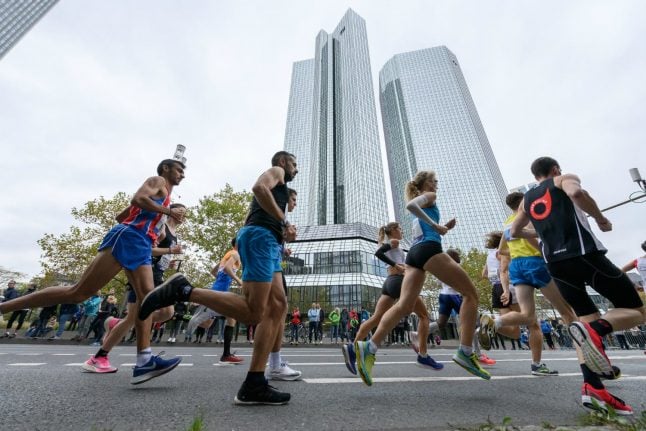Organisers announced on Tuesday that this year's race, scheduled for October 25th, has been cancelled.
“Set against the hardship which this worldwide pandemic has inflicted, the cancellation of a sports event is of minor significance,” said race director Jo Schindler.
“We have not taken this step lightly and have done our utmost to find solutions.
“Now we have to face the cold reality that cancellation is inevitable.”
The Frankfurt event, held annually since 1981, is the second-biggest in Germany behind the Berlin Marathon. Some 27,000 runners took part in 2019.
This year's Berlin Marathon, traditionally held in September, has already been cancelled.
Kenya's Wilson Kipsang holds the Frankfurt course record of two hours, 03:42 in 2011.
The 2019 men's race was won by Ethiopia's Fikre Tefera, while Kenya's Valary Aiyabei set a new course record of 2:19:10 in the women's event.
Several other large events, from concerts to festivals, have been cancelled across Germany due to the crisis.
Munich's famous beer gathering, Oktoberfest, is also not taking place this year.
Large events are banned in Germany until at least the end of October.
READ ALSO: Major events set to be banned in Germany until at least the end of October
Why are events banned?
In guidelines published earlier this year at the height of the epidemic, the government said large-scale events “play a major role in the dynamics of infection”.
Experts have repeatedly said that close-contact social gatherings have contributed to the spread of coronavirus.
Large outbreaks, such as that in Heinsberg, North Rhine-Westphalia, have stemmed from social gatherings. In this area, a carnival event is thought to have fuelled the spread of Covid-19 in communities during the beginning of the pandemic.
This ban on events therefore helps to contain the spread of coronavirus and at the same time provides some clarity for organisers and consumers.



 Please whitelist us to continue reading.
Please whitelist us to continue reading.
Member comments